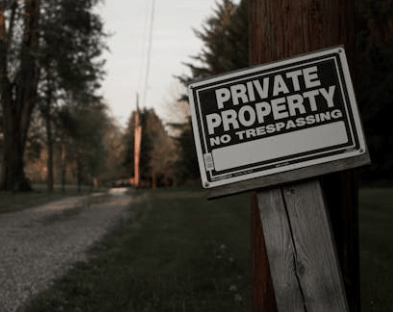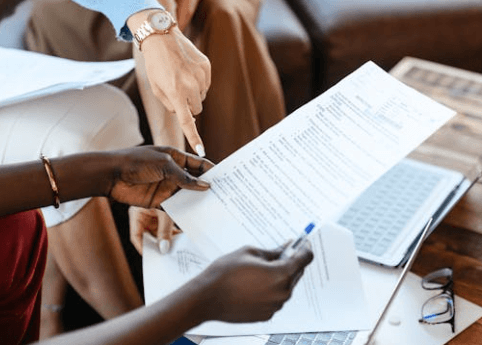Private property rights are fundamental to many legal systems worldwide, granting individuals the authority to own, control, and utilize their property. According to a report by the World Bank, stronger property rights contribute to higher levels of economic development and even increased household wealth. But what are private property rights? Simply put, they protect your ownership over land, belongings, and assets from unauthorized use or interference. For those looking to buy or sell land, understanding these rights is crucial to making sound choices. Renowned real estate experts Steve Daria and Joleigh, specializing in cash land purchases, offer invaluable guidance to help you navigate the complexities of property transactions with ease. Whether selling your land for cash or investing in real estate, their expertise ensures you make the most of your assets. Curious about what are private property rights? Book a free discussion with Steve Daria and Joleigh today to explore your options and take the next step toward securing your financial future.
Key Points
- Definition of Private Property Rights: Private property rights mean that you, as an owner, have full control over your property. This includes the ability to use, sell, lease, or transfer it as you see fit without interference from others.
- Protection Against Unauthorized Use: These rights safeguard your assets from unlawful use or entry. Private property rights ensure no one can take or use your property without your approval.
- Boost to Economic Development: Studies show that strong property rights support economic growth by encouraging investments. When people feel secure in their ownership, they are more likely to improve their property or use it productively.
- Legal and Financial Benefits: Private property rights make it easier to identify ownership for legal purposes. They also help when securing loans, as lenders often look for proof of clear property ownership.
- Role in Real Estate Transactions: Understanding these rights is key when buying or selling a home or land. Real estate professionals like Steve Daria and Joleigh, who specialize in purchasing properties for cash, can help you make confident decisions based on these rights.
What are private property rights?
Private property rights refer to the legal authority allowing individuals to own, control, and manage their possessions, whether land, a house, or personal belongings.
These rights give the owner the power to decide how to use the property, sell it, lease it, or even pass it on to someone else.
For example, owning a parcel of land means you can develop it, use it for business, or keep it as a private space if you follow local laws and regulations.

Private property rights also serve as protection, ensuring that others cannot use or take your property without your permission.
These rights play a crucial role in promoting economic growth because they make people feel secure in their ownership, encouraging them to invest or improve their property.
Additionally, they are vital in establishing a fair system for resolving disputes over ownership.
Wondering what are private property rights in the context of buying or selling property? Understanding them is particularly important in real estate, as they form the foundation for secure transactions and agreements.
Overall, these rights provide both security and freedom, allowing individuals to make the most of their assets.
Get Started: Get Your Cash Offer Below…
We are direct land buyers. There are no commissions or fees and no obligation whatsoever. Start below by sharing where your property is and where we can send your offer…
Why are private property rights important?
Private property rights are necessary because they allow individuals to control and protect what they own, whether it’s land, a home, or personal items.
These rights ensure that people can use their property as they see fit, within the limits of the law, which encourages responsibility and creativity.
For example, if you own land, private property rights allow you to build a home, farm it, or use it for other personal or business purposes.
They also provide legal protection so that no one can take or use your property without your permission.
This security leads to economic growth, as people feel confident investing in and improving their property.
Additionally, these rights create a fair and consistent system to resolve disputes, helping communities avoid conflicts.
Curious about “What are private property rights?” They form the foundation of economic stability and personal freedom, enabling individuals to achieve financial security and independence.
Without these rights, ownership would be uncertain, making it difficult for individuals and businesses to plan for the future.
What laws define private property rights?
- The Constitution: The U.S. Constitution plays a key role in defining private property rights, particularly through the Fifth Amendment. It protects individuals from having their property taken by the government without just compensation, ensuring fairness.
- The Land Title Act: This law governs the legal recording and recognition of property ownership. It clarifies who owns what and helps avoid disputes over land or property boundaries.
- Zoning Laws: Zoning regulations control how property can be used within specific areas, such as for residential or commercial purposes. These laws protect property owners by creating orderly development and preventing harmful uses of nearby land.
- The Fair Housing Act: This law bans discrimination in selling, renting, or financing property. It ensures that everyone has equal rights to acquire private property, regardless of race, gender, or other factors.
- The Property Law Act: Property law outlines the rules for transferring, inheriting, or managing property. It ensures that private property rights are safeguarded during legal transactions and disputes.

How can private property rights ensure financial security?
Private property rights are essential for ensuring financial security because they give individuals and businesses legal ownership of their assets.
This ownership allows you to use, sell, or lease your property, generating income and building wealth over time.
For example, owning a home gives you a valuable asset that can grow in worth, offering long-term financial growth.
Private property rights also safeguard against unlawful seizure, ensuring that your investments remain protected.
Businesses rely on these rights to secure loans using their property as collateral, which helps them expand and create jobs.
By clearly defining ownership, these rights reduce legal disputes and provide confidence in property transactions.
Understanding “What are private property rights?” can help you see how owning and controlling property leads to stability and opportunities.
Secure property rights lay the foundation for financial independence and future prosperity.
How do private property rights affect the buying or selling of property?
1. Define Legal Ownership
Private property rights establish clear legal ownership, which is crucial when buying or selling property.
They ensure that the person selling the property has the right to do so and that the buyer will legally own it after the transaction.
Without understanding “What are private property rights?” transactions could become risky and lead to ownership disputes.
2. Provide Security for Buyers
For buyers, private property rights guarantee their investment protection once the purchase is complete.
These rights stop anyone from taking your property unfairly or claiming it as their own.
Learning “What are private property rights?” helps buyers understand their protections and rights in the transaction process.
3. Simplify Transfer of Ownership
Clear private property rights streamline the transfer of ownership from a seller to a buyer.
They ensure all necessary documents and titles are in order, preventing confusion or delays.
Understanding “What are private property rights?” is critical to ensuring the transfer is done legally and efficiently.
4. Increase Property Value Confidence
When property rights are respected, buyers and sellers have confidence in the property’s value.
Sellers know they can receive full payment, and buyers trust that their purchase will hold its value over time.
This trust is rooted in the legal foundation provided by private property rights.
5. Enable Financing and Loans
Private property rights allow owners to use their property as collateral for loans, helping buyers secure financing for a purchase.
Clear rights reassure banks and lenders that the property holds legal value, making transactions smoother.
Whether buying or selling, knowing “What are private property rights?” can help you make smart financial decisions in property transactions.
What steps should I take to protect my private property rights?
To protect your private property rights, taking several steps to ensure your ownership is secure is important.
First, ensure your property title and ownership documents are clear, up-to-date, and legally recorded.
This eliminates confusion and potential disputes over ownership.
Second, learn “What are private property rights?” to fully understand your entitlements and responsibilities, which will help you protect your land from illegal claims or misuse.
Third, set up appropriate property boundaries and ensure they’re marked to avoid conflicts with neighbors.
You can also use legal tools like wills, trusts, or contracts to safeguard your assets from future disputes.
Fourth, regularly monitor your property and check for any unauthorized activity, such as trespassing or illegal use.
Finally, consult with seasoned experts like Steve Daria and Joleigh, trusted real estate investors and land buyers for cash, to receive professional guidance tailored to your situation.
They offer clear guidance on the legal challenges of property ownership, helping you make confident, informed decisions.
Take action today—contact these experts for advice, ensuring your property is protected for years!
**NOTICE: Please note that the content presented in this post is intended solely for informational and educational purposes. It should not be construed as legal or financial advice or relied upon as a replacement for consultation with a qualified attorney or CPA. For specific guidance on legal or financial matters, readers are encouraged to seek professional assistance from an attorney, CPA, or other appropriate professional regarding the subject matter.
